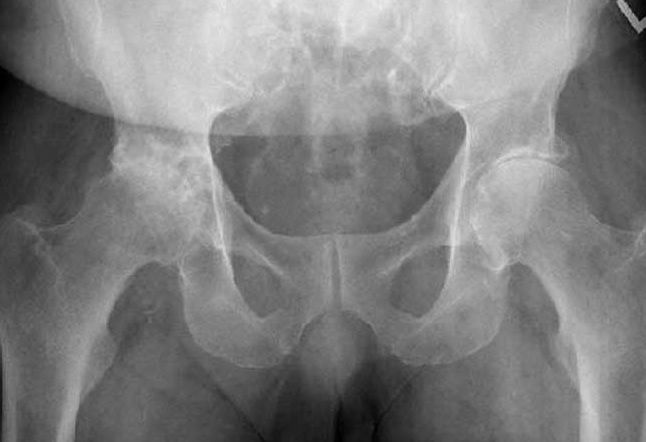Tanezumab Reduces Hip OA Pain, Improves Function
In phase 3 trials, the nerve growth factor inhibitor tanezumab significantly relieved the pain of hip osteoarthritis, compared to placebo.
Brown MT, Murphy FT, Radin DM et al. Tanezumab reduces osteoarthritic hip pain_ Results of a randomized, double-blind, placebo-controlled phase 3 trial. Arthritis & Rheumatism (2013) Accepted Article, doi: 10.1002/art.37950 (/journal/10.1002/(ISSN)1529-0131/accepted)
Pain from osteoarthritis (OA) of the hip responds significantly better to tanezumab than to placebo, according to a large phase 3 study.

The 32-week double-blind, placebo-controlled trial of tanezumab, a monoclonal antibody that targets nerve growth factor, included 621 patients with hip OA who had inadequate pain relief from non-opiate medications, were unwilling or unable to take such drugs, or were candidates for intraarticular injections or hip replacement. They were randomized to receive either placebo or 2.5 mg, 5 mg, or 10 mg of intravenous tanezumab at weeks 1, 8 and 16.
Patients in each tanezumab group had significant improvement versus placebo in the study’s three co-primary endpoints -- pain and physical function (WOMAC Pain subscale, WOMAC Physical Function subscale) and the Patient’s Global Assessment of OA (PGA).
In particular, tanezumab groups had greater reductions (≥30%, ≥50%, ≥70%, and ≥90%, respectively) in the WOMAC Pain subscale than those in the placebo group at week 16.
The overall incidence of serious adverse incidents (AEs) was similar in the tanezumab groups (55–58%) versus 44% for placebo. The predominant adverse effects were eripheral edema, infections in the upper respiratory or urinary tract, pain in an extremity, arthralgia or paresthesia, and headache. Safety findings were similar to those previously reported.
The tanezumab OA clinical program was placed on temporary hold in 2010 by the FDA because of AEs leading to joint replacement in eight patients (five of them in the treatment group). The agency lifted the hold last year, recommending continued development of the drug.